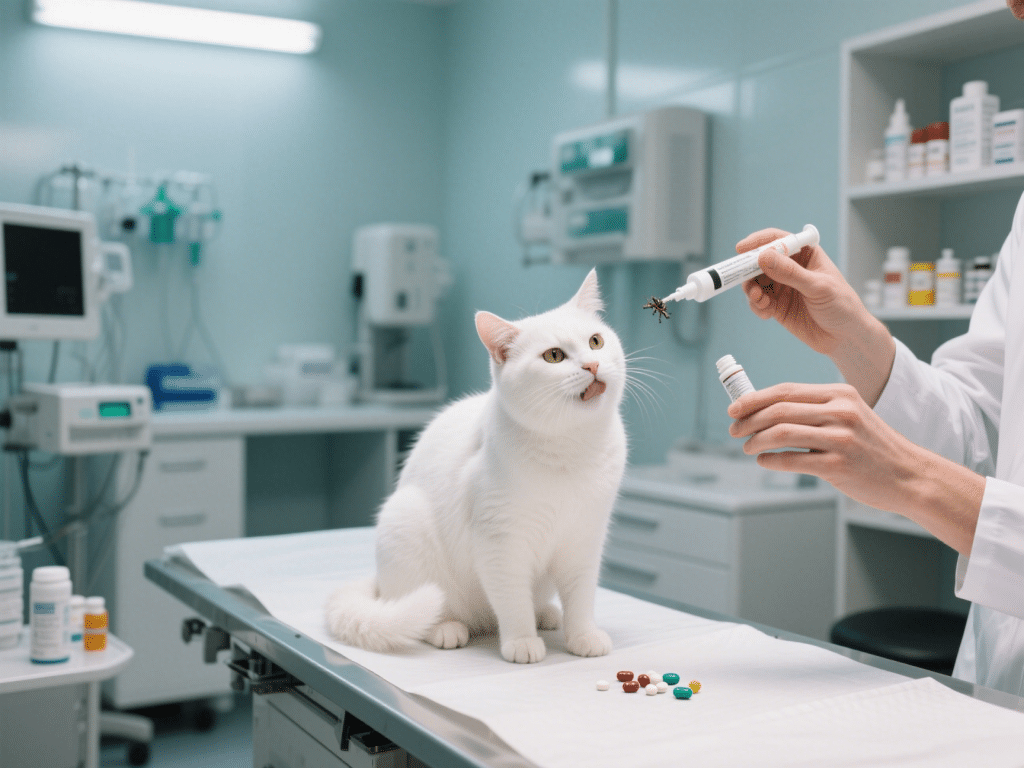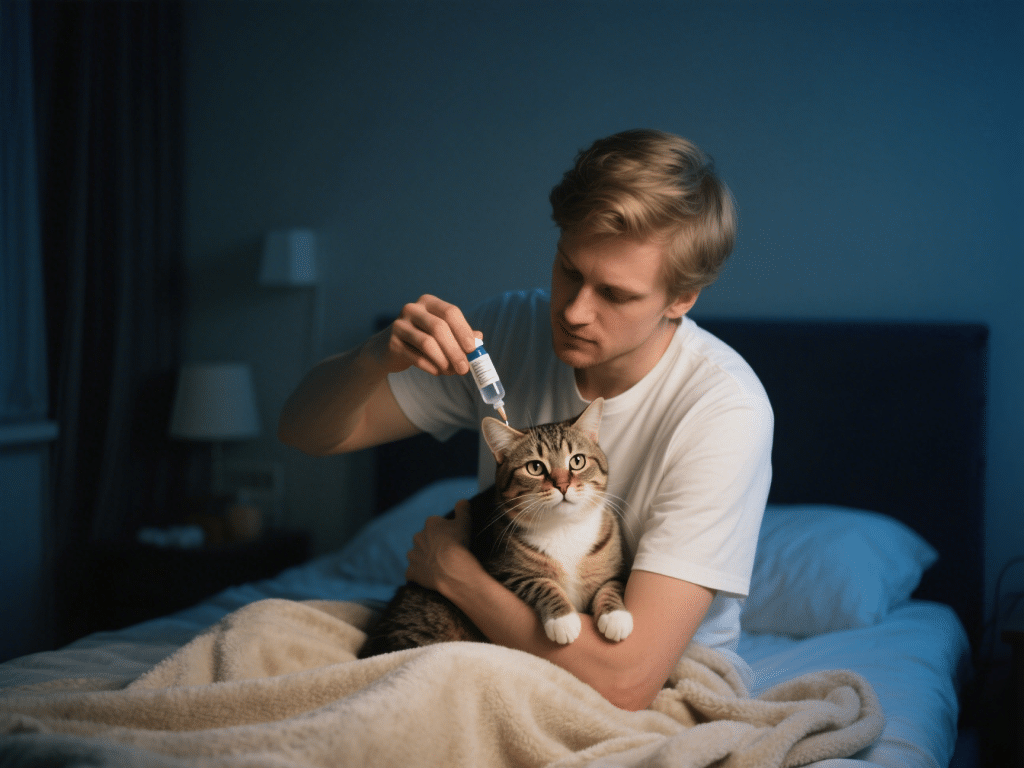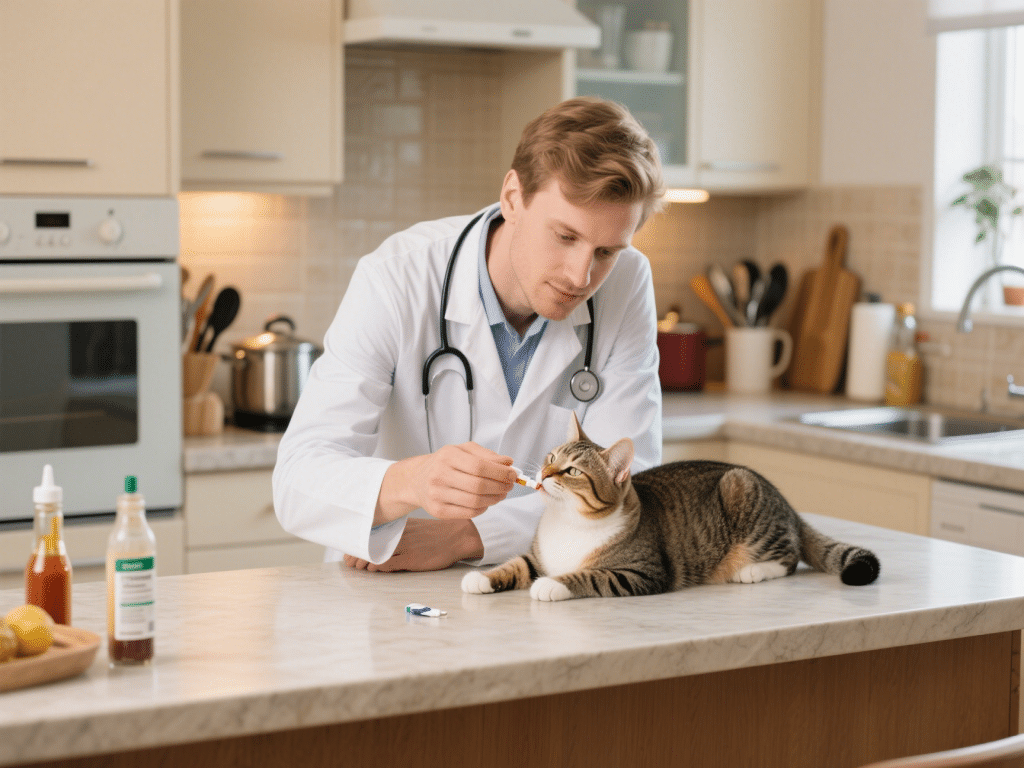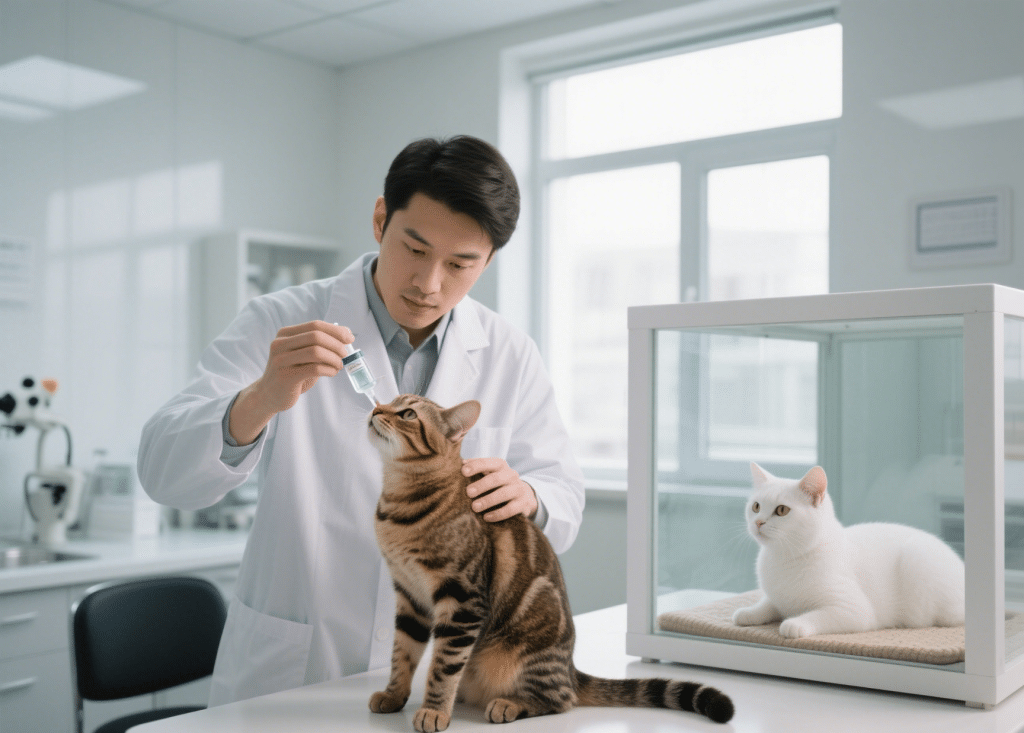Seasonal Deworming Strategy for Cats: Summer Flea Risks
Introduction
Summer brings warmer temperatures and increased flea activity, heightening the risk of tapeworm infections and other parasites in cats. A seasonal deworming strategy, aligned with flea prevention, is essential to protect felines during high-risk months. This guide outlines a summer-focused deworming plan to keep cats healthy year-round.
1. Understanding Flea-Transmitted Parasites
Tapeworm Lifecycle:
Flea larvae ingest tapeworm eggs in the environment; adult fleas harbor cysticercoids.
Cats ingest infected fleas while grooming, leading to tapeworm infection within 24 hours.
Other Summer Parasites:
Hookworms and roundworms can also be transmitted through contaminated soil or prey.
2. Pre-Summer Preparations (Late Spring)
Flea Prevention Initiation:
Start monthly spot-on flea and parasite control (e.g., selamectin or fipronil/ (s)-methoprene) in May.
Inspect and treat all household pets simultaneously to eliminate flea reservoirs.
Environmental Treatment:
Vacuum carpets, curtains, and pet bedding weekly.
Wash bedding in hot water and use IGR (insect growth regulator) sprays on indoor surfaces.
Baseline Deworming:
Perform a fecal exam in late spring to identify any residual parasite burdens.
Administer a broad-spectrum dewormer (fenbendazole or pyrantel/praziquantel) if positive.
3. Summer Deworming Schedule (June–August)
Monthly Spot-On Treatments:
Use products like Revolution® (selamectin) for combined flea, ear mite, and intestinal parasite control.
Reapply every 30 days even if the cat does not go outdoors.
Tapeworm-Specific Deworming:
In July (peak flea season), administer praziquantel (5–7.5 mg/kg orally) to address potential tapeworm exposure.
Follow up with a fecal exam 2–3 weeks later to confirm eradication.
Combination Topical Options:
Advantage Multi® (moxidectin/imidacloprid) offers comprehensive protection; apply monthly for intestinal parasite and flea control.
4. Post-Summer Maintenance (Early Fall)
Fecal Recheck:
Conduct a fecal float in September to detect any lingering summer parasites.
Adjust future deworming frequency if persistent infections are found.
Environmental Deep Clean:
Steam-clean carpets and upholstery to kill flea eggs and larvae.
Replace or thoroughly disinfect outdoor cat shelters and bedding.
5. Long-Term Year-Round Plan
Quarterly Deworming:
Outside peak summer, administer broad-spectrum dewormer (fenbendazole or pyrantel/praziquantel) every 3 months.
Monthly Flea Control:
Continue year-round for indoor-outdoor cats; reduces intermediate flea hosts.
Regular Vet Visits:
Biannual wellness checks with fecal exams to monitor parasite status.
Adjust strategy based on local flea prevalence and individual cat risk factors.
Conclusion
A summer-focused deworming strategy that combines monthly topical treatments, targeted tapeworm control, and rigorous environmental management effectively combats flea-transmitted parasites. Coupled with year-round preventive measures, this approach ensures cats remain healthy and parasite-free.
Explore Dogs

Why Is My Cat Drooling After Deworming? Causes and Solutions
IntroductionDrooling (ptyalism) in cats after deworming is alarming for owners. While mild drooling ...
Read More
Veterinarian Tips: Deworming Pregnant Dogs Safely
IntroductionDeworming pregnant dogs is essential to protect the dam and her puppies from congenital ...
Read More
Comparing Spot-On vs Pill Dewormers for Cats: Pros and Cons
IntroductionCat owners often face the choice between spot-on (topical) and pill (oral) dewormers. Ea...
Read More
Step-by-Step: Administering Dewormer to a Nervous Cat
IntroductionAdministering oral medication to a nervous cat can be challenging. Stress can compromise...
Read More
Top Safe Deworming Methods for Indoor Cats: Effective Parasite Prevention
IntroductionIndoor cats are often perceived as less susceptible to parasites, but they can still con...
Read More
Best-Tasting Dewormers for Cats: A Flavor Guide for Fussy Felines
Why Flavor Matters in Feline DewormingCats detect bitterness 100x more intensely than humans due to ...
Read More
What to Do If Your Cat Loses Appetite After Deworming
Understanding Post-Deworming Appetite Loss in CatsIt’s common for cats to experience temporary app...
Read More
Can You Cuddle a Cat Right After Deworming? Handling Tips for Owners
Can You Cuddle a Cat Right After Deworming? Handling Tips for OwnersDeworming is essential for your ...
Read More
How to Deworm a Multi-Cat Household Without Spreading Parasites
How to Deworm a Multi-Cat Household Without Spreading ParasitesIntroductionDeworming a multi-cat hou...
Read More